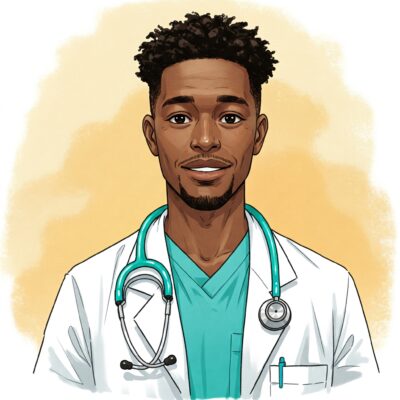Doctors diagnose, treat, and help prevent illnesses and injuries in patients.
What is a typical day in a Doctor’s career?
Doctors work on average 50-60 hours a week. At the start of your career, you may work even more hours including nights and weekends especially when you get into Student Residency. A typical day involves:
– Seeing a variety of patients with diverse symptoms either in a clinical office or within hospital wards
– Clerical work such as recording patient history, symptoms, treatment during duration of visit/ hospital stay
– Conducting examinations and prescribing treatments
– First line of care for medical emergencies.
– Depending on posting, one may be required to perform major and minor procedures such as surgeries, maternal deliveries, under supervision.
– Referring patients to specialists when necessary.
What else might they be expected to do?
– Educate and counsel patients about health management
– Communicate with family members regarding patient’s condition
What type of training is needed for this career path?
– A Bachelor of Medicine and Bachelor of Surgery (MBChB), typically five to six years.
– A year of internship in a clinical setting.
– Specialization requires further training and exams.
Mandatory Subject Requirements at O-Level / A-Level?
– Biology, Chemistry, Mathematics/Physics, English/Kiswahili.
What kind of personality is needed to excel in this career path?
– Compassionate and resilient – a doctor’s day may be gruesome and mostly inconsiderate of the doctor’s personal state, but the profession requires that the patient’s needs come before all other.
– Detail-oriented.
– Passion for helping the sick. Though it might be lucrative in the long run, there are easier ways to make money.
– Big 5 traits: Conscientiousness and Agreeableness.
– Myers-Briggs types: INFJ or ISFJ often align with this career.
What kind of interests do people in this career path have?
– Strong investigative interest (I).
– Social interests (S).
– Interests & Aptitude: Investigative (I) and Social (S)
Are there any innate skills or aptitudes required?
– Critical thinking
– Calmness under pressure
– Empathy
What challenges can I expect to face if I pursue this career path?
– Managing high-stress situations
– Working long hours
– Dealing with emotional stress from patient outcomes and Adapting to rapid medical advancements
What are the job prospects for this path in Kenya and Africa? What about International prospects for a Kenyan citizen?
– Kenya and Africa: GPs are in high demand, especially in rural areas. The African continent has a shortage of doctors, offering considerable opportunity. However, government policy does not typically favour hiring of doctor’s despite the need.
– International: Kenyan doctors may need additional studies and examinations to be recognized in other countries but can find rewarding opportunities abroad.
What should I focus on if I choose to pursue this career?
– Building strong foundations in biology and chemistry.
– Developing practical skills and compassion.
– Building resilience for the demands of medical school and clinical practice.
Which other careers or job roles can I progress to?
– Specialties like surgery, paediatrics, or oncology with further training
– Healthcare administration
– Public health
– Medical research

